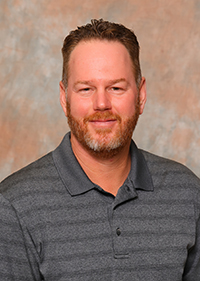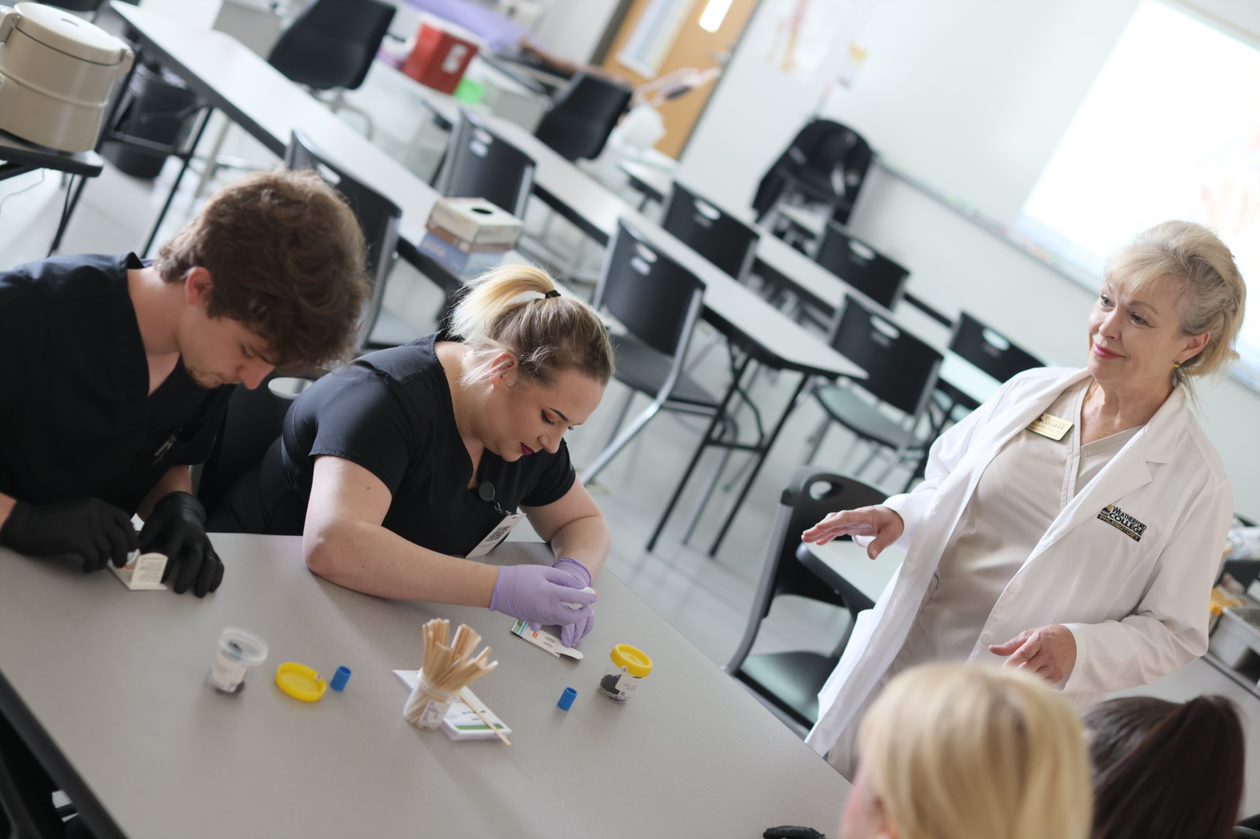Cip Code: 51.1004
What is Phlebotomy?
Phlebotomists collect blood, process samples, and perform point-of-care and waived laboratory testing while looking cool in a lab coat. They operate computers and analyzers. Fine motor, communication, and people skills are a must. Interest in science is a plus!
Why WC?
- One of only two accredited phlebotomy programs in the State of Texas
- Certified to work after only one semester
- 16 hour college curriculum-prep for a career in the medical field
- Students are on-boarded to contracted clinical sites
- Phlebotomy registry exam practice included
- Earn points toward other medical programs or bundle certificates
Career Options
Work in a hospital, outpatient collection center, blood or plasma donation center, physician's office, or research lab.
Many hospitals pay tuition reimbursement while you continue your medical education.
Salaries varying depending on the specific healthcare setting, with outpatient care centers typically offering higher pay compared to other settings. The hourly rate varies from $17.00- $22.00/hour.
The Phlebotomy Program is a pre-requisite to an exciting career in Medical Laboratory Technology, now offered at Weatherford College as an Associate’s degree. Analyze blood and body fluids, discover anemia and leukemias; identify pathogenic organisms and be a critical part of the Healthcare Team. The Bureau of Labor Statistics projects annual MLT pay in 2025 to be $60,780.00 with positive job growth!
Related Programs
- Medical Laboratory Technology
- Radiological Technology
- Vocational Nursing
- Associate Degree Nursing
- Diagnostic Medical Sonography
- Respiratory Care
- Occupational Therapy Assistant
- Physical Therapist Assistant
- Radiological Technology
- Clinical Medical Assistant
- Certified Nurse Aide
- EMT/Paramedic
Transfer Options
Work in the Phlebotomy field, pursue a career as an MLT or MLS in the medical laboratory science field, or pursue other medical fields such as Radiology Technology, Sonography, Respiratory Care, Nursing, OTA, or PTA.
Scholarships
- Garza and Becan-McBride Scholarship for Phlebotomy Students from ASCP
- Catholic Charities Scholarship
- Apply for all WC scholarships to which you may qualify.
Faculty

Program Director
Benjamin Vanlenthe is a certified phlebotomist with extensive hospital experience. He worked independently on the overnight shift, where he was responsible for the early morning draws—consistently achieving higher-than-average collection volumes and managing patients with increased levels of complexity.
Prior to accepting a full-time position, Benjamin served as adjunct faculty at Weatherford College for five years. During this time, he acted as a clinical preceptor for students from multiple institutions and contributed to interdepartmental training initiatives focused on phlebotomy skills.
Credentialed through the American Society for Clinical Pathology (ASCP), Benjamin brings a unique perspective to his teaching. His experience spans both sides of the educational process: as a practitioner in the field and as an instructor in classroom and clinical environments. His comprehensive background enables him to effectively guide students in developing the practical skills and professional insight necessary for success in the field of phlebotomy.
Administrative Assistant, Health and Human Sciences
mellis-jackson@wc.edu
817-598-6217
